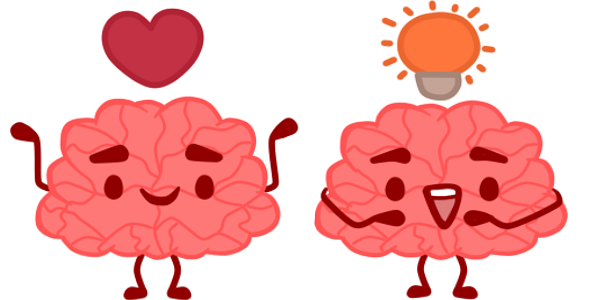
El Alzheimer es la causa más común de la demencia, afectando así de forma drástica la memoria, el pensamiento propio y las habilidades para poder socializar, esto ocasiona problemas graves que logran interferir en el estilo de vida común de cualquier persona.
Alzheimer's is the most common cause of dementia, thus drastically affecting memory, self-thinking and abilities to be able to socialize, this causes serious problems that manage to interfere with the common lifestyle of any person.
El Alzheimer es un trastorno neurológico progresivo ¿qué significa esto? Que es una enfermedad que ataca al sistema nervioso ya sea central, periférico, o en algo algunos casos a ambos. Afecta al cerebro, la médula espinal, los nervios craneales y periféricos así mismo se verán afectados las raíces nerviosas, el sistema nervioso autónomo y los músculos por los impulsos nerviosos.
Alzheimer's is a progressive neurological disorder, what does this mean? That it is a disease that attacks the nervous system, whether central, peripheral, or in some cases both. It affects the brain, the spinal cord, the cranial and peripheral nerves, as well as the nerve roots, the autonomic nervous system and the muscles by nerve impulses.
El Alzheimer al ser un trastorno neurológico hace que el cerebro se atrofie y por lo tanto las neuronas cerebrales mueran, así mismo existirá una disminución de la masa cerebral. Debido a lo anteriormente mencionado el cerebro comenzará a presentar fallas y de esta manera el pensamiento, comportamiento y las habilidades para interactuar comienzan a fallar... En pocas palabras podríamos decir que el Alzheimer provoca una pérdida de la memoria, es el responsable de crear una desorientación con respecto al tiempo y el espacio que nos rodea además de crear un deterioro intelectual lo cual dificulta el poder aprender, entender, razonar, el tomar decisiones o el simple hecho de crear una idea para afrontar algún problema.
Alzheimer's being a neurological disorder causes the brain to atrophy and therefore brain neurons die, likewise there will be a decrease in brain mass. Due to the aforementioned, the brain will begin to show failures and in this way the thinking, behavior and skills to interact begin to fail ... In a few words we could say that Alzheimer's causes a loss of memory, it is responsible for creating a disorientation with respect to time and space that surrounds us in addition to creating an intellectual deterioration which makes it difficult to learn, understand, reason, make decisions or the simple fact of creating an idea to face a problem.

Así mismo los pacientes con esta patología neurológica comienzan a perder su personalidad, en donde esos rasgos y cualidades que lo conforman y lo hacen diferenciar de los demás se va perdiendo poco a poco ya que la persona llega a olvidar quien es.
Likewise, patients with this neurological pathology begin to lose their personality, where those traits and qualities that make it up and make it differentiate from others are gradually being lost as the person comes to forget who they are.
¿Cómo saber cuando una persona comienza con Alzheimer?
How do you know when a person starts with Alzheimer's?
Por lo general los signos tempranos del Alzheimer se tratan de olvidos de conversaciones recientes, en algunos casos también suelen olvidar algunos eventos que han ocurrido con anterioridad, a medida que este trastorno neurológico va avanzando debido al deterioro de todo lo anteriormente mencionado la persona perderá la memoria y la capacidad de poder hacer frente a su vida cotidiana, por lo general estos pacientes requieren de la ayuda de un familiar para poder seguir llevando su día a día, en otras ocasiones suelen contratar a un personal de enfermería para estar con él en sus cuidados diarios.
In general, the early signs of Alzheimer's are about forgetting recent conversations, in some cases they also tend to forget some events that have occurred previously, as this neurological disorder progresses due to the deterioration of all the aforementioned, the person will lose the memory and the ability to cope with their daily life, these patients generally require the help of a family member to be able to carry on with their day to day, on other occasions they usually hire a nursing staff to be with them in their daily care.

Síntomas comunes
Common symptoms
Una persona que padece Alzheimer suele ser consciente al principio de la enfermedad de que puede tener problemas para recordar ciertas cosas, sin embargo a medida que avanza la patología el paciente llegará a un punto donde no recuerda con claridad o no recuerda absolutamente nada.
A person who suffers from Alzheimer's is usually aware at the beginning of the disease that he may have problems remembering certain things, however as the disease progresses the patient will reach a point where he does not remember clearly or does not remember anything at all.
Entre las conductas comunes de una persona con alzheimer existe el repetir afirmaciones de forma constante y/o preguntar una y otra vez lo mismo, un ejemplo es el siguiente; puede que la persona haya preguntado algo, pasan 5 minutos y vuelve a realizar la pregunta... Y así sucesivamente, en ocasiones puede que hasta se moleste porque llega a pensar que no ha sido respondido.
Among the common behaviors of a person with Alzheimer's there is constantly repeating affirmations and / or asking the same thing over and over again, an example is the following; The person may have asked something, 5 minutes pass and they ask the question again ... And so on, sometimes they may even get upset because they think that it has not been answered.
La persona puede colocar objetos personales en donde no deberían ir, es decir en un lugar absurdo y sin sentido, sería como colocar una taza de café en el lavado del baño.
The person can place personal items where they should not go, that is, in an absurd and meaningless place, it would be like placing a cup of coffee in the bathroom sink.
Es común que las persona se pierda en lugares que ya conoce y frecuenta ir, como lo son las caminatas al parque, por el vecindario o inclusive su propia casa puede llegar a ser un lugar desconocido.
It is common for people to get lost in places they already know and frequent, such as walks to the park, around the neighborhood or even their own home can become an unknown place.
Además de lo anteriormente mencionado es común ver que la persona tiene problemas para recordar los nombres de sus familiares y amigos, además de objetos de uso cotidiano. Esto mismo lleva a una dificultad de poder tener una conversación fluida ya que olvidan las palabras y como es el expresarse.
In addition to the aforementioned, it is common to see that the person has problems remembering the names of their family and friends, as well as everyday objects. This same leads to a difficulty of being able to have a fluent conversation since they forget the words and how it is to express themselves.

El estado de ánimo de una persona con Alzheimer se puede ver comprometido por lo que mismo se verá afectado el comportamiento, podemos observar en algunos casos ansiedad, apatía, depresión, aislamiento social, cambios repentinos en el humor, desconfianza en las personas que le rodean como su familiares por ejemplo, desorientación, e inclusive podemos presenciar delirios.
The mood of a person with Alzheimer's can be compromised so behavior will be affected, in some cases we can observe anxiety, apathy, depression, social isolation, sudden changes in mood, distrust in the people around him like their relatives, for example, disorientation, and we can even witness delusions.
El Alzheimer lastimosamente no tiene cura, su tratamiento se basa en efectos farmacológicos que solo ayudan a disminuir los síntomas por lo que suelen ayudar por un período de tiempo, entre los medicamentos que se utilizan destacan los inhibidores de la colinesterasa y la memantina.
Unfortunately there is no cure for Alzheimer's disease, its treatment is based on pharmacological effects that only help reduce symptoms, so they usually help for a period of time, among the drugs used, cholinesterase inhibitors and memantine stand out.
¿Podemos prevenir el Alzheimer?
Can we prevent Alzheimer's?
El Alzheimer no se puede prevenir como tal de forma directa, sin embargo podemos modificar varios de nuestros patrones diarios como lo son algunos factores de riesgo que favorecen a que la enfermedad se pueda desencadenar, el ayudar a mejorar nuestro estilo de vida es un punto clave para disminuir la probabilidad de padecer algún trastorno neurológico.
Alzheimer's cannot be prevented as such directly, however we can modify several of our daily patterns such as some risk factors that favor the disease to be triggered, helping to improve our lifestyle is a key point to reduce the probability of suffering from a neurological disorder.
Hacer ejercicio de forma regular, ya que ayuda a la actividad neurológica.
Exercise regularly, as it helps neurological activity.
Llevar una alimentación saludable, balanceada en proteínas y minerales, consumir alimentos frescos junto a la cantidad de aceite necesaria, el llevar una nutrición adecuada ayuda a nuestro cerebro en su función neuronal.
Eating a healthy diet, balanced in proteins and minerals, consuming fresh food together with the necessary amount of oil, having adequate nutrition helps our brain in its neuronal function.
Si tienes problemas con alguna patología como lo es la diabetes o la presión arterial alta es necesario llevar un adecuado tratamiento y cuidado ya que estas enfermedades suelen ser un gran factor de riesgo para desencadenar la patología de Alzheimer.
If you have problems with any pathology such as diabetes or high blood pressure, it is necessary to take adequate treatment and care since these diseases are usually a great risk factor to trigger Alzheimer's disease.
EVITAR el consumo de alcohol y cigarrillos ya que afectan a nuestro organismo y sobre todo le hacen daño a nuestras células cerebrales.
AVOID the consumption of alcohol and cigarettes as they affect our body and especially harm our brain cells.
Hay muchos estudios realizados que indican que el mantener nuestra capacidad intelectual activa puede ayudar a reducir el Alzheimer, el hecho de socializar, leer, bailar, cantar, jugar o cualquier otra actividad recreativa que pueda ayudar a nuestro amigo el cerebro es bienvenida para reducir el riesgo de Alzheimer.
There are many studies that indicate that keeping our intellectual capacity active can help reduce Alzheimer's, the act of socializing, reading, dancing, singing, playing or any other recreational activity that can help our friend the brain is welcome to reduce the Alzheimer's risk.
▪️ El separador que acabas de ver, es de mi autoridad.
▪️ Las imágenes que acabas de ver, son de mi autoridad.
▪️ The separator you just saw is from my authority.
▪️ The images you just saw are my authority.
Me gusta enseñar sobre las cosas que sé, y dar así un poquito de mi para ustedes, muchas gracias por leer, cualquier comentario o alguna duda que tengas será bien recibida.
I like to teach about the things I know, and thus give a little of myself to you, thank you very much for reading, any comments or questions you have will be well received.
Técnica superior universitaria de enfermería / Higher university nursing technique. - @arisita
Originally posted here: https://hive.blog/hive-148441/@arisita/esp-or-eng-alzheimer-trastorno-neurologico-que-nos-hace-perder-nuestra-identidad-alzheimer-s-neurological-disorder-that-makes-us





No comments:
Post a Comment